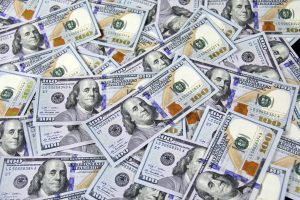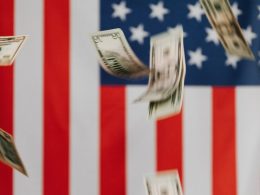In the land of opportunity, where dreams are forged and ambitions fulfilled, the United States stands as a beacon of prosperity. For generations, Americans have believed that their nation’s robust economy is the cornerstone of their success and global standing. Yet, beneath the gleaming skyscrapers and bustling streets, there exists a perplexing paradox—a paradox that unveils the hidden costs of prosperity.
As we delve into the depths of this economic enigma, it becomes evident that the American dream comes at a price, and this price is not just financial. The prosperity we cherish so dearly may be obscuring deeper issues that warrant our attention.
The Wealth Gap Widens
One of the most glaring consequences of America’s economic prosperity is the ever-widening wealth gap. Despite the nation’s unparalleled wealth, millions of Americans still struggle to make ends meet. Income inequality has reached alarming levels, leaving a substantial portion of the population behind, unable to enjoy the fruits of economic success.
The wealthiest 1% control a significant portion of the country’s wealth, while many families face financial instability. A country that touts itself as the land of opportunity must confront this stark disparity.
Social Strain

With prosperity comes migration, as people from all walks of life seek to partake in America’s economic bounty. However, this influx brings with it a host of social challenges. Rapid urbanization, congestion, strained infrastructure, and a lack of affordable housing have become commonplace in major cities. The consequence is the erosion of the quality of life that prosperity is meant to provide.
As cities expand, the cost of living skyrockets, making it increasingly difficult for everyday Americans to access basic necessities and enjoy a high quality of life. The very success that attracts individuals to the United States is also what threatens their livelihoods.
Environmental Conundrums
The pursuit of prosperity often exacts a heavy toll on the environment. Economic growth, as it is traditionally measured, frequently disregards the ecological cost. As factories churn out goods, vehicles fill the highways, and energy consumption soars, the ecological balance is disrupted.
The hidden cost of prosperity in this context is the looming environmental crisis. Climate change, pollution, and resource depletion are all exacerbated by unchecked economic expansion. America’s paradoxical pursuit of prosperity may, in fact, compromise the long-term health and sustainability of the nation and the planet.
Mental Health Struggles
Amidst the clamor of economic success, mental health issues often go unaddressed. The pressures of the modern American lifestyle, characterized by relentless competition and a perpetual race for success, take a toll on mental well-being. The quest for prosperity can leave individuals feeling isolated, anxious, and overwhelmed.
As the nation pushes forward in its pursuit of prosperity, it must not neglect the mental well-being of its citizens. Mental health, an often-overlooked hidden cost, requires attention and investment to ensure that economic success does not come at the price of individual happiness.
The Future of Prosperity
In exploring the hidden costs of prosperity, it is clear that the pursuit of economic growth is a double-edged sword. While it has lifted millions out of poverty and created a prosperous society, it has also given rise to numerous challenges that demand attention.
The question that emerges is not whether prosperity is desirable but how it can be achieved without neglecting the social fabric, environment, and well-being of the citizens. As Americans, we must address this paradox and find ways to minimize the hidden costs while reaping the rewards of a prosperous society.
In our quest for economic success, we must remember that prosperity should extend to all, protect our environment, foster social harmony, and safeguard mental health. America’s economic paradox challenges us to redefine prosperity itself, ensuring that it is not a prize for the few but a shared treasure for all.












